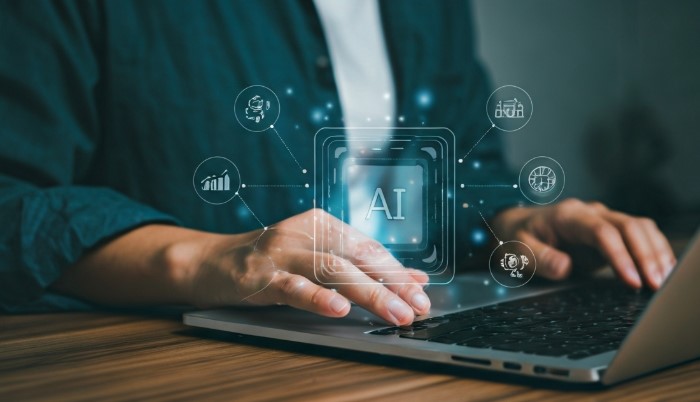
Explore the Top AI Marketing Trends 2025 for Success
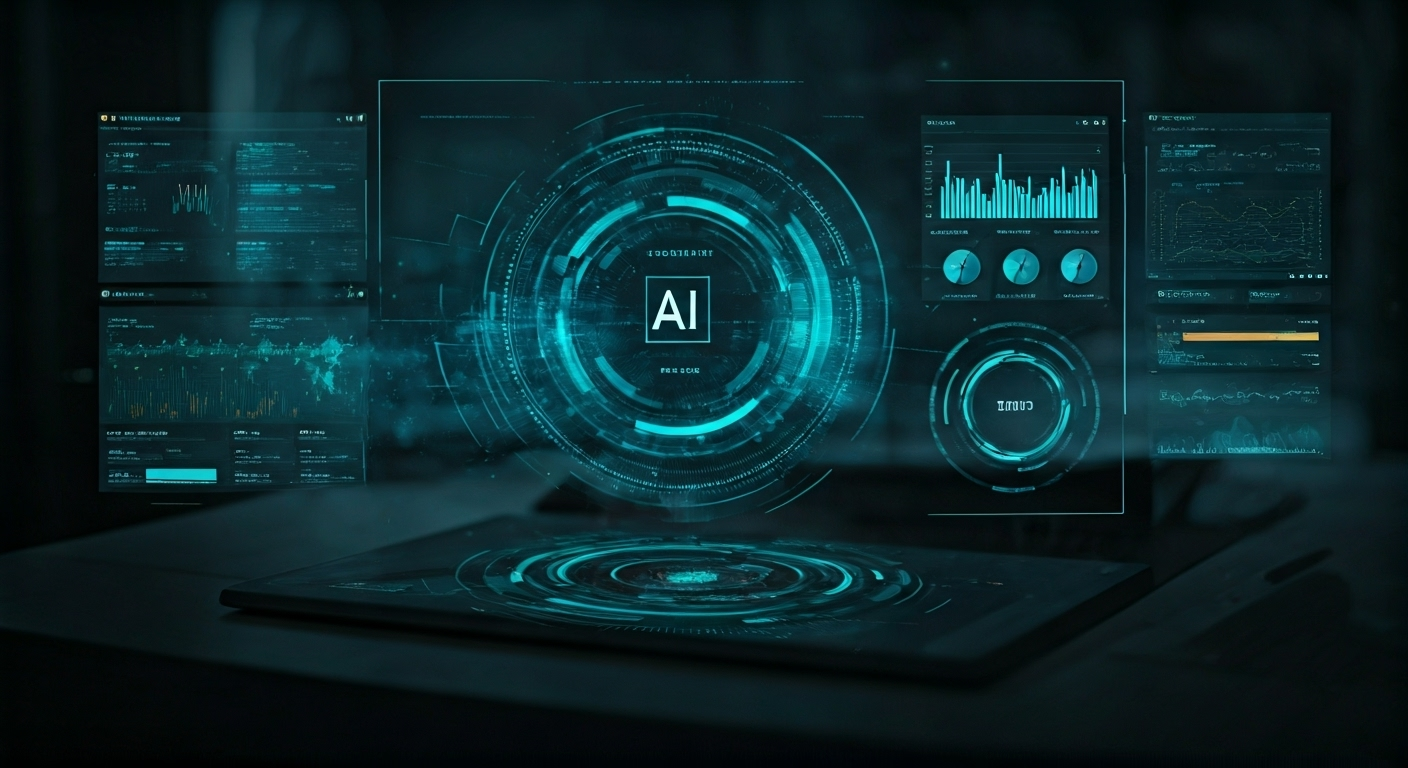
Key Highlights
- AI marketing statistics show that 88% of marketers use artificial intelligence daily, transforming marketing strategies and driving innovation.
- Generative AI will redefine content creation, from product descriptions to ad campaigns, delivering higher quality and efficiency in 2025.
- Hyper-personalization powered by AI will dramatically improve customer experience, audience segmentation, and customer engagement across channels.
- Automation of repetitive tasks becomes standard practice for marketing teams, streamlining marketing processes and boosting productivity.
- Predictive analytics and marketing automation deliver deeper insights into customer behavior, enabling smarter decision-making and competitive advantage.
- Ethical governance and responsible AI use will be critical, addressing privacy concerns and shaping future marketing trends.
Continue reading to explore these trends in detail and learn actionable strategies for staying competitive in the AI-driven marketing landscape.
Introduction
Artificial intelligence is revolutionizing the marketing landscape, bringing forth an array of innovative strategies and tools that redefine how brands connect with consumers. As businesses navigate an increasingly competitive environment, the use of AI technologies becomes indispensable for achieving market success. The advent of machine learning, sentiment analysis, and automation significantly enhances customer experiences and engagement. Furthermore, marketing professionals are leveraging generative AI and predictive analytics to gain deeper insights into consumer behavior, ultimately shaping their marketing strategies in an era where adapting to change is critical for growth.
The Leading AI Marketing Trends Shaping 2025

In 2025, AI marketing will be heavily influenced by innovative trends that redefine how businesses interact with consumers. Automation will streamline marketing processes, enhancing efficiency and allowing teams to focus on strategic initiatives. Meanwhile, hyper-personalization will prioritize unique customer experiences, tailoring content to specific preferences and behaviors. The rise of generative AI will also revolutionize content creation, enabling marketers to produce engaging materials swiftly. These trends will be essential for gaining a competitive edge and ensuring marketing strategies remain relevant in a rapidly evolving landscape.
1. AI Automation Becomes Standard Practice
Automation powered by artificial intelligence is rapidly transitioning from a novel concept to a standard practice within marketing frameworks. With the capabilities of machine learning, repetitive tasks can be efficiently managed, allowing marketing teams to focus on strategic initiatives. The integration of AI tools facilitates streamlined processes, significantly enhancing campaign execution and customer engagement. As organizations recognize the most value from these technologies, the adoption of AI automation is set to redefine marketing processes, making them more agile and responsive to evolving customer behavior and needs.
2. Hyper-Personalization and Customer Experience
Data-driven insights increasingly shape the customer experience, resulting in hyper-personalization strategies that cater to individual preferences. Utilizing AI technologies, marketing teams can analyze user behavior and segment audiences with remarkable accuracy, delivering relevant content that resonates deeply with consumers. This fine-tuning enhances customer satisfaction and fosters loyalty, as tailored interactions create a seamless journey throughout their brand encounters. Embracing these innovative approaches allows businesses to maximize the impact of their marketing efforts, ultimately providing a significant competitive edge in a rapidly evolving marketplace.
3. Generative AI for Creative Content Production
In the evolving landscape of digital marketing, the role of generative AI in creative content production is becoming indispensable. By harnessing advanced algorithms and machine learning capabilities, marketing teams can generate high-quality content that resonates with target audiences. This not only streamlines the content creation process but also enhances audience engagement through personalized, relevant material. Additionally, generative AI tools allow marketers to experiment with diverse formats, thus optimizing their marketing strategies and fostering innovation. As a result, businesses gain a competitive edge while meeting the diverse needs of customers effectively.
4. Predictive Analytics and Forecasting in Marketing
Utilizing predictive analytics transforms how marketing teams strategize and implement campaigns. By leveraging machine learning algorithms, marketers can analyze vast datasets to forecast customer behavior, enabling targeted outreach and optimized resource allocation. This data-driven approach not only enhances decision-making but also allows for personalized marketing experiences tailored to the unique needs of the target audience. Implementing these AI technologies equips marketers with deeper insights and a competitive edge, facilitating more effective customer engagement and ensuring that marketing efforts are both relevant and timely.
5. AI-Powered Programmatic Advertising
In the rapidly evolving digital landscape, programmatic advertising is experiencing a transformation driven by artificial intelligence. Leveraging machine learning algorithms, marketers can optimize ad placements in real-time, ensuring that campaigns resonate with their target audience. This strategy allows for advanced audience segmentation, delivering relevant content based on user behavior. By automating repetitive tasks, marketing teams can enhance efficiency and focus on crafting compelling narratives. As AI technologies further refine data analytics, brands can expect increased customer engagement and satisfaction, gaining a crucial competitive edge in their marketing efforts.
6. Voice Search and Synthetic Voice Integration
Voice search continues to revolutionize how users interact with technology, significantly shaping marketing strategies. Its integration into everyday applications enhances user experience and accessibility, driving the need for marketers to optimize for voice-activated searches. Synthetic voice technology, leveraging advancements in artificial intelligence, enables more engaging and realistic interactions. By analyzing customer behavior and preferences, brands can create tailored audio content that resonates with their target audience. This shift not only improves customer engagement but also positions businesses to achieve a competitive advantage in an increasingly voice-dominated landscape.
7. Augmented Reality (AR) Enhanced by AI
Innovations in augmented reality (AR) now integrate seamlessly with artificial intelligence (AI), creating richer user experiences. By leveraging AI technologies, marketers can analyze user behavior and tailor AR content to meet specific customer needs, enhancing engagement and interactions. This combination not only optimizes content generation but also fosters immersive customer journeys, allowing brands to stand out in competitive markets. As AR continues to mature with AI, marketing strategies can harness this synergy to create compelling narratives and deliver relevant content that resonates with target audiences effectively.
8. Sentiment Analysis with Emotional Intelligence
Understanding customer sentiment through emotional intelligence allows marketers to tailor their strategies effectively. By leveraging sentiment analysis, brands can decode customer behavior and perceptions in real-time, leading to actionable insights. This capability enables marketing teams to refine their messaging and content, ensuring it resonates on a deeper emotional level. Moreover, integrating emotional intelligence with artificial intelligence enhances the accuracy of sentiment interpretation, which is crucial in developing targeted campaigns. As a result, businesses can foster meaningful customer engagement and enhance overall satisfaction within their audience.
9. Autonomous Agentic AI in Collaboration
Collaboration between marketing teams and autonomous agentic AI is set to transform workflow dynamics in 2025. These AI systems, capable of understanding and responding to complex tasks, enhance team productivity by taking over repetitive tasks that traditionally burden human resources. Leveraging machine learning, they adapt to user behavior and preferences, significantly enriching audience segmentation efforts. As a result, marketing professionals can focus on higher-level strategic initiatives. The integration of these AI technologies fosters deeper insights, improving content generation and ultimately leading to better customer experiences and satisfaction.
10. AI Visibility Optimization for Search Engines
Search engines are evolving, integrating AI technologies that enhance visibility optimization strategies. By utilizing machine learning algorithms, marketers can analyze user behavior to refine SEO strategies, ensuring relevant content surfaces in search results. Enhanced data analysis allows for effective audience segmentation, permitting a tailored approach to meet diverse customer needs. Incorporating AI tools facilitates the real-time adjustment of keywords and content, maintaining a competitive edge. As AI continues to shape digital marketing, staying abreast of these changes will be crucial for maximizing search engine visibility.
11. Real-Time Feedback Loops with AI
Leveraging real-time feedback loops with AI technologies transforms how marketing teams analyze customer interactions. By utilizing machine learning algorithms, businesses can continuously gather and analyze user behavior, allowing for instantaneous adjustments in marketing strategies. This dynamic approach enhances engagement, as insights gleaned from real-time data foster more relevant content and improved customer experiences. Implementing AI-driven feedback mechanisms empowers marketers to swiftly adapt campaigns, ensuring they resonate with the target audience while identifying emerging trends that could impact overall marketing effectiveness.
12. Localization and Multilingual Marketing with AI
Leveraging AI for localization enhances multilingual marketing strategies significantly. Advanced natural language processing capabilities allow brands to adapt their messaging to resonate with diverse audiences, ensuring cultural relevance and linguistic accuracy. By utilizing AI tools, marketing teams can analyze customer behavior and preferences across different regions, facilitating tailored content generation that drives engagement. This approach not only improves customer satisfaction but also strengthens global branding efforts. As user behavior becomes increasingly global, effective localization powered by AI technologies offers a distinct competitive advantage in reaching target demographics more effectively.
13. AI-Driven Social Media Monitoring
Social media monitoring is set to transform with AI-driven technologies that streamline the analysis of user behavior and sentiment across various platforms. By harnessing machine learning algorithms, marketing teams can gain deeper insights into audience engagement and trends in real time, enhancing content strategies. Leveraging these AI tools for sentiment analysis will enable organizations to adapt campaigns dynamically, ensuring relevance and resonance with the target audience. This proactive approach not only improves customer satisfaction but also solidifies a competitive edge in the ever-evolving digital landscape.
14. AI-Powered Chatbots and Virtual Assistants
Advancements in artificial intelligence increasingly empower chatbots and virtual assistants to enhance customer service. Utilizing natural language processing, these AI tools engage users in real-time conversations that address queries and improve customer satisfaction. By analyzing user behavior, they deliver personalized interactions tailored to individual needs, significantly enhancing the customer experience. Moreover, businesses leveraging AI-powered solutions gain a competitive edge, streamlining repetitive tasks in marketing campaigns and allowing marketing teams to focus on higher-level strategy. As the rise of AI continues, expect these technologies to redefine customer engagement and support.
15. Ethical Governance and Responsible AI Use
Balancing the innovative potential of artificial intelligence with ethical governance is crucial for marketing teams. Responsible AI use ensures that trust is maintained between brands and their audiences. Implementing guidelines for data privacy, consent, and transparency promotes customer satisfaction and aligns with evolving regulations. Moreover, fostering diversity in AI development helps mitigate algorithmic bias, enhancing fairness in audience segmentation and targeting. Industry leaders must prioritize ethical considerations in AI technologies to create a competitive advantage while safeguarding against potential risks associated with AI misuse.
Actionable Strategies to Leverage AI Marketing Trends
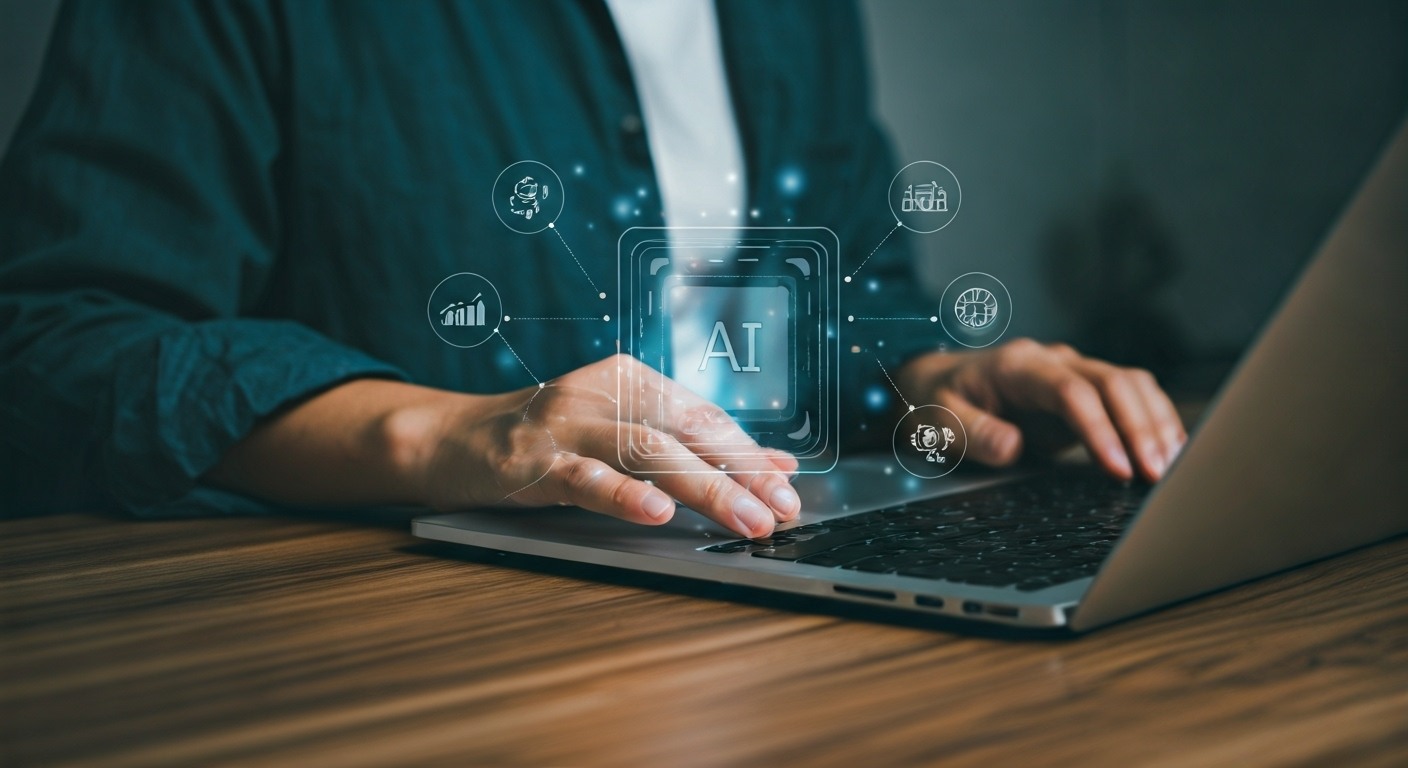
Utilizing AI marketing trends effectively involves a multifaceted approach. Implementing AI automation across campaigns streamlines repetitive tasks, allowing marketing teams to focus on creative strategies. Harnessing hyper-personalization enhances customer engagement, ensuring content resonates with the target audience. Integrating generative AI into content workflows not only boosts production efficiency but also cultivates deeper insights into user behavior. Embracing these actionable strategies ensures organizations remain ahead of the curve, maximizing the potential of AI technologies to meet customer needs while driving innovation within marketing processes.
Implementing AI Automation Across Campaigns
Effective integration of AI automation within marketing campaigns can be transformative for teams. By streamlining repetitive tasks such as data analysis, content generation, and user engagement, marketing professionals can focus on strategic initiatives. Leveraging AI tools helps optimize resources, ensuring campaigns are data-driven and responsive to customer behavior. As automation becomes standard practice, companies will gain a competitive edge in executing targeted marketing strategies. The use of predictive analytics allows for real-time adjustments, enhancing customer experiences and driving satisfaction throughout the customer journey.
Harnessing Hyper-Personalization for Higher Engagement
Creating highly personalized experiences is essential for driving customer engagement in 2025. Leveraging AI technologies, marketing teams can analyze user behavior to deliver relevant content tailored to individual preferences. This approach not only enhances customer satisfaction but also fosters brand loyalty. Techniques like dynamic content generation and audience segmentation allow marketers to connect on a deeper level with their target audience. By utilizing machine learning algorithms, businesses can anticipate customer needs and adapt marketing strategies in real time, ensuring that every interaction resonates with users and ultimately increases conversion rates.
Integrating Generative AI into Content Workflows
Incorporating generative AI into content workflows revolutionizes how marketing teams operate, enabling them to generate relevant content at an unprecedented scale. This technology streamlines the content creation process, allowing marketing professionals to focus on strategy rather than repetitive tasks. By leveraging AI tools, brands can enhance audience segmentation and tailor their messaging to meet specific customer needs, thereby improving engagement. Furthermore, insights gained from data analysis inform adjustments in real-time, ensuring that content remains aligned with user behavior and preferences for a more impactful digital strategy.
Key Statistics and Data on AI Adoption in Marketing (2025)
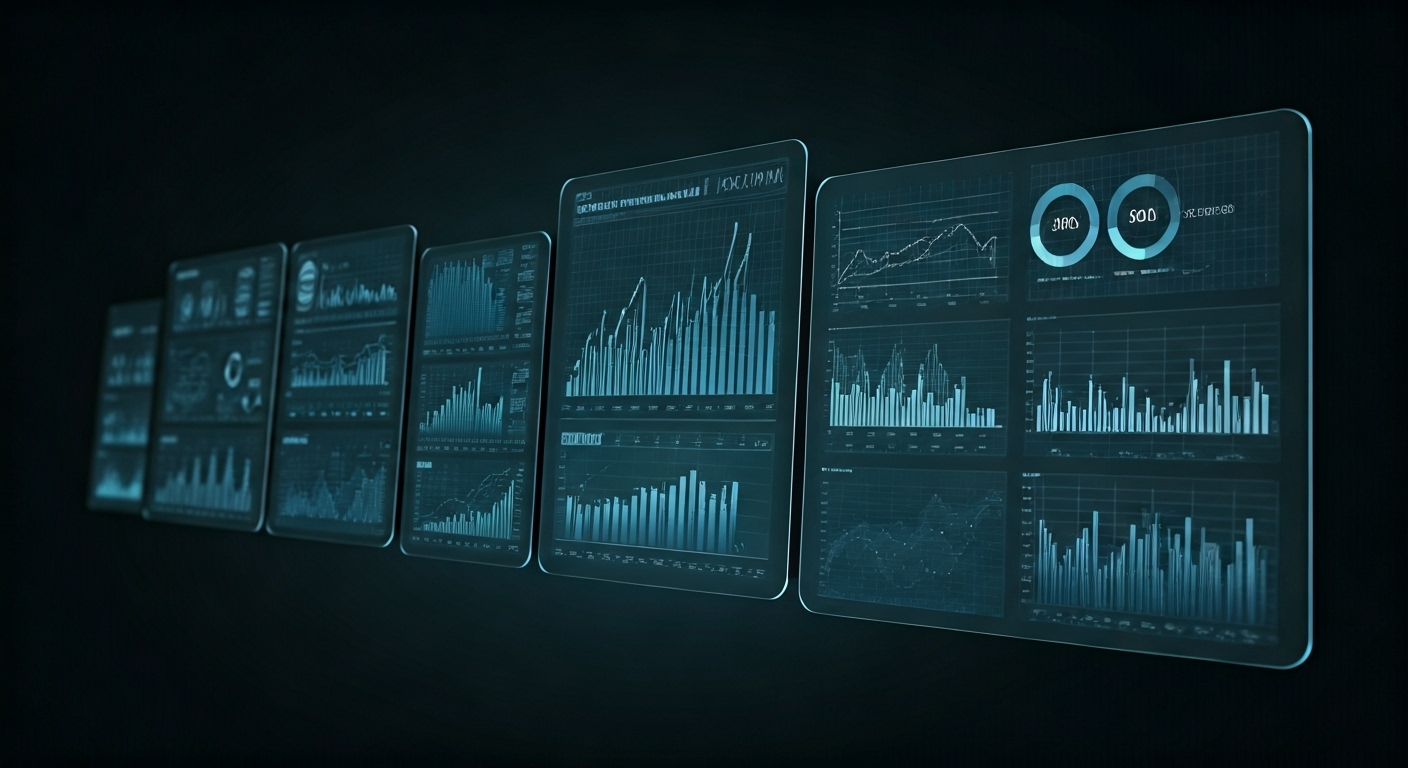
Projecting into 2025, the growth rate of AI marketing adoption is anticipated to surge, with industry leaders forecasting a remarkable increase of over 30% annually. Most marketers in the U.S. are expected to leverage AI tools, particularly for enhancing customer engagement and optimizing content generation processes. Significant investment is also on the horizon, with budgets dedicated to AI initiatives expected to double as organizations prioritize data analysis and machine learning integration. These AI marketing statistics underscore the urgency for marketing professionals to adapt to evolving technologies and refine their strategies to maintain a competitive edge.
Projected Growth Rate of AI Marketing Adoption
The anticipated growth rate of AI marketing adoption is staggering, reflecting a broader shift towards AI technologies that can enhance marketing strategies. Industry leaders predict a compound annual growth rate (CAGR) exceeding 25% over the next few years, driven by increasing demand for predictive analytics, hyper-personalization, and marketing automation tools. As businesses recognize the competitive edge AI offers in understanding customer behavior and improving customer experiences, investment in these innovations is likely to surge, positioning AI at the forefront of digital marketing evolution.
Most Popular AI Tools Among US Marketers
Innovative AI tools are increasingly becoming integral to marketing strategies among U.S. marketers. Platforms like HubSpot leverage machine learning for customer engagement, while tools such as Hootsuite and Buffer enhance social media management through automation. Additionally, generative AI solutions like Jasper significantly streamline content creation, allowing teams to focus on strategy rather than repetitive tasks. Incorporating insights from predictive analytics tools helps marketers forecast trends and customer behavior, ensuring that campaigns remain relevant and effective. The growing use of AI technologies offers a competitive advantage in the evolving digital landscape.
Current Investment Trends and Budgets for AI Initiatives
Markedly increasing investments in AI initiatives highlight a growing recognition of the technology's value in enhancing marketing efforts. Companies are allocating larger budgets towards AI tools and machine learning solutions, aiming to gain a competitive edge through improved customer engagement and personalized experiences. This trend is driven by a need for deeper insights into customer behavior and preferences, which can significantly refine marketing strategies. As AI adoption accelerates, expect to see a shift in resource allocation, prioritizing innovative technologies for maximizing return on investment in marketing campaigns.
AI-Powered Tools and Platforms Predicted to Shape 2025
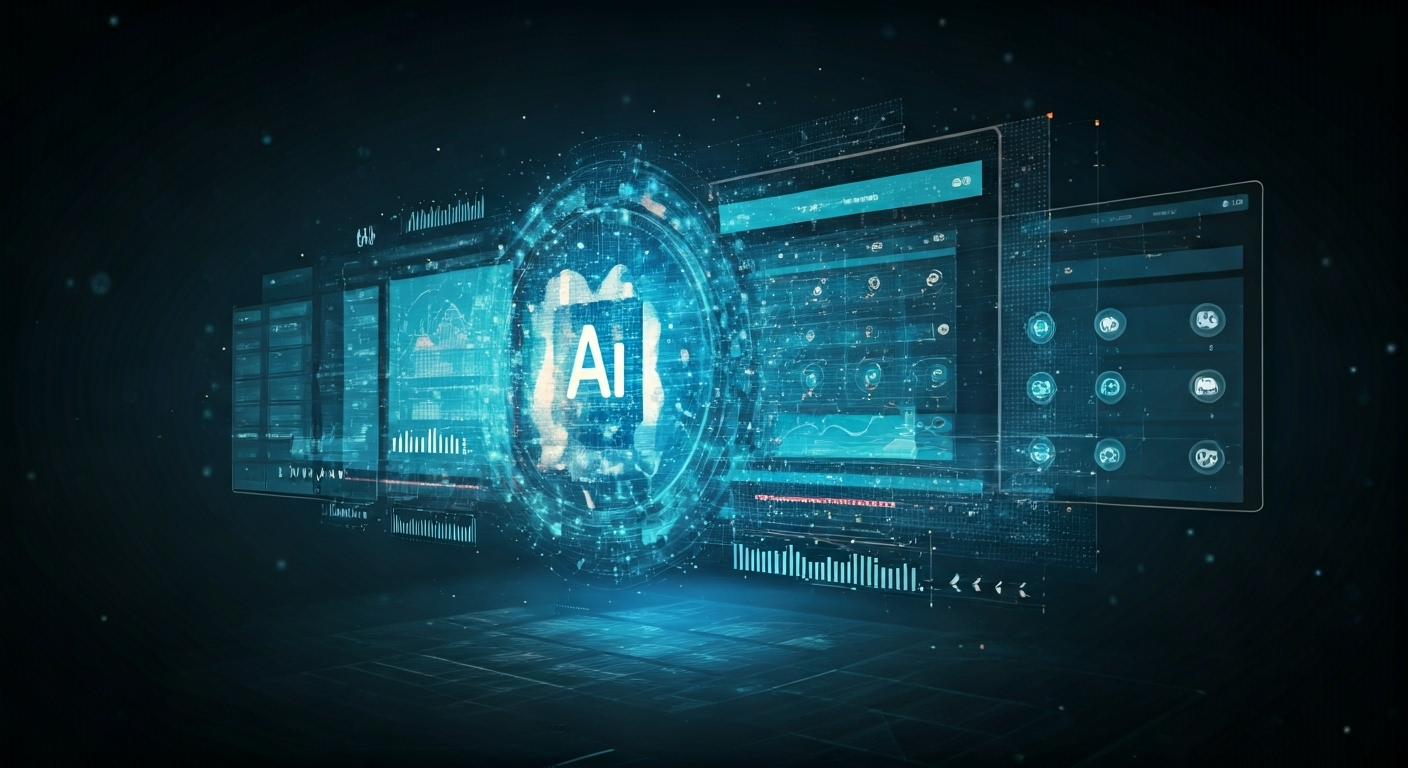
Several new AI tools and platforms are set to shape the marketing landscape in 2025. Innovations in content generation will streamline workflows, enhancing marketing teams' productivity by minimizing repetitive tasks. Advanced marketing automation platforms will leverage machine learning to optimize campaigns and improve customer engagement through data analysis. Moreover, real-time analytics and decision intelligence solutions will empower industry leaders with deeper insights into user behavior, enabling more agile marketing strategies. This evolution in AI technologies promises not only efficiency but also a significant competitive advantage for businesses seeking to engage their target audience effectively.
Content Creation and Generation Tools
The emergence of advanced content creation and generation tools is transforming marketing strategies. By leveraging artificial intelligence and machine learning, these platforms streamline repetitive tasks and facilitate creative processes. Marketers can now produce high-quality product descriptions and engaging social media posts more efficiently. These AI tools not only enhance content marketing efforts but also provide valuable data analysis for audience segmentation and engagement. With the right tools, marketing teams can optimize their workflows, ensuring that customer needs are met while gaining a competitive edge in an increasingly digital landscape.
Marketing Automation and Workflow Management Platforms
Emerging as vital components in AI marketing strategies, sophisticated marketing automation and workflow management platforms streamline processes across teams. By harnessing machine learning, these tools not only enhance productivity but also optimize customer engagement through data-driven insights. Automated workflows allow marketing professionals to focus on creative endeavors while AI handles repetitive tasks, leading to improved efficiency in managing campaigns. Real-time analytics from these platforms provide deeper insights into customer behavior, enabling teams to refine their marketing strategies and enhance overall user experience.
Data Analytics and Decision Intelligence Solutions
Harnessing data analytics and decision intelligence solutions will empower marketing teams to derive deeper insights into customer behavior. By leveraging artificial intelligence and machine learning, these technologies facilitate advanced data analysis, enabling marketers to fine-tune their strategies and enhance customer engagement. Moreover, they support more informed decisions that align with evolving consumer needs, driving market research and audience segmentation. Ultimately, these tools provide a competitive edge by optimizing marketing processes and enhancing overall performance, ensuring that organizations remain agile in the dynamic landscape of digital marketing.
Challenges and Risks Associated with AI Marketing in 2025

Addressing data privacy concerns will be paramount as businesses adopt AI technologies in marketing strategies. A rise in the utilization of machine learning for audience segmentation and sentiment analysis necessitates stringent compliance with regulations to protect consumer data. Additionally, navigating algorithmic bias presents significant challenges for marketing professionals, as these biases can distort customer experiences and lead to misaligned messaging. Overcoming organizational readiness and skill gaps must also be prioritized, ensuring that marketing teams can effectively implement AI tools while maintaining ethical governance in their processes.
Addressing Data Privacy and Regulation Changes
Navigating the complexities of data privacy is essential for marketing professionals in 2025. With increasing scrutiny on how personal data is handled, organizations must leverage artificial intelligence to enhance compliance measures while also maintaining a competitive edge. Real-time monitoring of regulations becomes crucial, allowing marketing teams to adapt their strategies swiftly. The use of AI tools can streamline processes, ensuring transparency and accountability. Emphasizing ethical considerations alongside customer engagement not only bolsters trust but also nurtures customer satisfaction, aligning marketing efforts with emerging legal frameworks.
Navigating Algorithm Bias and Ethical Concerns
Emerging challenges in AI marketing largely revolve around algorithmic bias and ethical practices. Ensuring that AI technologies operate transparently is crucial for maintaining trust among consumers. Marketing teams must prioritize fairness, inclusivity, and representativeness in data sets to combat bias, thereby enhancing customer satisfaction. Adopting robust ethical frameworks will not only address privacy concerns but also ensure that marketing strategies resonate with diverse consumer needs. Implementing diligent oversight in AI systems allows organizations to mitigate the risks associated with biased outcomes, fostering a balanced digital landscape.
Overcoming Organizational Readiness and Skill Gaps
Bridging the gap in organizational readiness and addressing skill shortages is essential for harnessing AI marketing effectively. Training programs that focus on emerging AI tools can empower marketing teams to enhance their capabilities in areas like data analysis and automated campaign management. Implementing mentoring initiatives can foster a culture of continuous learning, ensuring staff stay abreast of evolving AI technologies. Encouraging collaboration among marketing professionals will also facilitate the sharing of insights and creative solutions, ultimately driving deeper engagement and improving customer experiences throughout the marketing journey.
KeywordSearch: SuperCharge Your Ad Audiences with AI
KeywordSearch has an AI Audience builder that helps you create the best ad audiences for YouTube & Google ads in seconds. In a just a few clicks, our AI algorithm analyzes your business, audience data, uncovers hidden patterns, and identifies the most relevant and high-performing audiences for your Google & YouTube Ad campaigns.
You can also use KeywordSearch to Discover the Best Keywords to rank your YouTube Videos, Websites with SEO & Even Discover Keywords for Google & YouTube Ads.
If you’re looking to SuperCharge Your Ad Audiences with AI - Sign up for KeywordSearch.com for a 5 Day Free Trial Today!
Conclusion
In 2025, artificial intelligence will redefine the marketing landscape, providing unmatched insights and capabilities. The integration of AI tools into marketing strategies will not only enhance customer engagement but also streamline repetitive tasks and optimize marketing processes. As brands adopt these emerging technologies, the focus must remain on ethical governance and customer satisfaction. Marketing professionals who effectively harness these trends will gain a significant competitive edge, positioning themselves ahead of industry leaders. Embracing these advancements ensures a future where personalized customer experiences thrive, bolstering overall market success.
Frequently Asked Questions
What skills will marketers need to succeed with AI in 2025?
Marketers will need strong analytical skills to leverage data insights, creativity for content generation, and technical proficiency to use AI tools effectively. Additionally, adaptability and ethical understanding are crucial for navigating the evolving landscape of AI-driven marketing strategies in 2025.
How are leading companies planning to leverage AI for marketing success in 2025?
Leading companies are harnessing AI for marketing success in 2025 by embracing automation, enhancing customer experiences through hyper-personalization, and leveraging predictive analytics. They also focus on integrating generative AI and ethical governance to ensure responsible practices while maximizing engagement and efficiency in their campaigns.
Can you share examples of successful AI-driven marketing campaigns predicted for 2025?
As AI continues to evolve, we can expect successful campaigns like personalized email marketing powered by predictive analytics and dynamic ad placements through programmatic advertising. Brands may also leverage generative AI for unique content creation, enhancing customer engagement across various channels.
